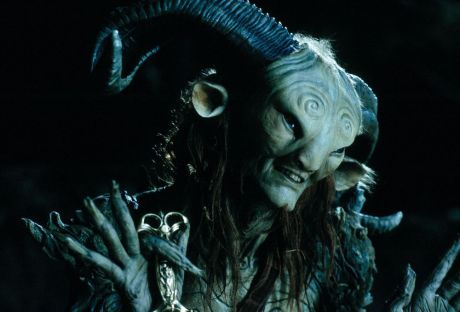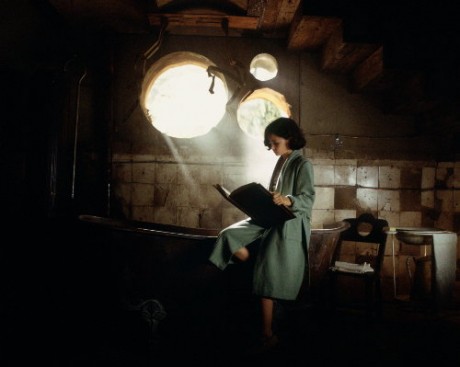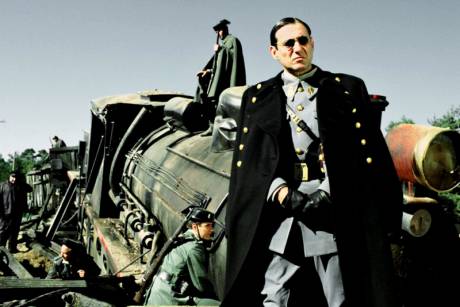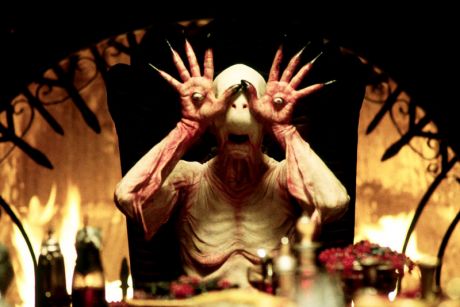 North Korea Increases Aid to Russia, Mos... Tue Nov 19, 2024 12:29 | Marko Marjanovi? North Korea Increases Aid to Russia, Mos... Tue Nov 19, 2024 12:29 | Marko Marjanovi?
 Trump Assembles a War Cabinet Sat Nov 16, 2024 10:29 | Marko Marjanovi? Trump Assembles a War Cabinet Sat Nov 16, 2024 10:29 | Marko Marjanovi?
 Slavgrinder Ramps Up Into Overdrive Tue Nov 12, 2024 10:29 | Marko Marjanovi? Slavgrinder Ramps Up Into Overdrive Tue Nov 12, 2024 10:29 | Marko Marjanovi?
 ?Existential? Culling to Continue on Com... Mon Nov 11, 2024 10:28 | Marko Marjanovi? ?Existential? Culling to Continue on Com... Mon Nov 11, 2024 10:28 | Marko Marjanovi?
 US to Deploy Military Contractors to Ukr... Sun Nov 10, 2024 02:37 | Field Empty US to Deploy Military Contractors to Ukr... Sun Nov 10, 2024 02:37 | Field Empty Anti-Empire >>
Indymedia Ireland is a volunteer-run non-commercial open publishing website for local and international news, opinion & analysis, press releases and events. Its main objective is to enable the public to participate in reporting and analysis of the news and other important events and aspects of our daily lives and thereby give a voice to people.
 Fraud and mismanagement at University College Cork Thu Aug 28, 2025 18:30 | Calli Morganite Fraud and mismanagement at University College Cork Thu Aug 28, 2025 18:30 | Calli Morganite
UCC has paid huge sums to a criminal professor
This story is not for republication. I bear responsibility for the things I write. I have read the guidelines and understand that I must not write anything untrue, and I won't.
This is a public interest story about a complete failure of governance and management at UCC.
 Deliberate Design Flaw In ChatGPT-5 Sun Aug 17, 2025 08:04 | Mind Agent Deliberate Design Flaw In ChatGPT-5 Sun Aug 17, 2025 08:04 | Mind Agent
Socratic Dialog Between ChatGPT-5 and Mind Agent Reveals Fatal and Deliberate 'Design by Construction' Flaw
This design flaw in ChatGPT-5's default epistemic mode subverts what the much touted ChatGPT-5 can do... so long as the flaw is not tickled, any usage should be fine---The epistemological question is: how would anyone in the public, includes you reading this (since no one is all knowing), in an unfamiliar domain know whether or not the flaw has been tickled when seeking information or understanding of a domain without prior knowledge of that domain???!
This analysis is a pretty unique and significant contribution to the space of empirical evaluation of LLMs that exist in AI public world... at least thus far, as far as I am aware! For what it's worth--as if anyone in the ChatGPT universe cares as they pile up on using the "PhD level scholar in your pocket".
According to GPT-5, and according to my tests, this flaw exists in all LLMs... What is revealing is the deduction GPT-5 made: Why ?design choice? starts looking like ?deliberate flaw?.
People are paying $200 a month to not just ChatGPT, but all major LLMs have similar Pro pricing! I bet they, like the normal user of free ChatGPT, stay in LLM's default mode where the flaw manifests itself. As it did in this evaluation.
 AI Reach: Gemini Reasoning Question of God Sat Aug 02, 2025 20:00 | Mind Agent AI Reach: Gemini Reasoning Question of God Sat Aug 02, 2025 20:00 | Mind Agent
Evaluating Semantic Reasoning Capability of AI Chatbot on Ontologically Deep Abstract (bias neutral) Thought
I have been evaluating AI Chatbot agents for their epistemic limits over the past two months, and have tested all major AI Agents, ChatGPT, Grok, Claude, Perplexity, and DeepSeek, for their epistemic limits and their negative impact as information gate-keepers.... Today I decided to test for how AI could be the boon for humanity in other positive areas, such as in completely abstract realms, such as metaphysical thought. Meaning, I wanted to test the LLMs for Positives beyond what most researchers benchmark these for, or have expressed in the approx. 2500 Turing tests in Humanity?s Last Exam.. And I chose as my first candidate, Google DeepMind's Gemini as I had not evaluated it before on anything.
 Israeli Human Rights Group B'Tselem finally Admits It is Genocide releasing Our Genocide report Fri Aug 01, 2025 23:54 | 1 of indy Israeli Human Rights Group B'Tselem finally Admits It is Genocide releasing Our Genocide report Fri Aug 01, 2025 23:54 | 1 of indy
We have all known it for over 2 years that it is a genocide in Gaza
Israeli human rights group B'Tselem has finally admitted what everyone else outside Israel has known for two years is that the Israeli state is carrying out a genocide in Gaza
Western governments like the USA are complicit in it as they have been supplying the huge bombs and missiles used by Israel and dropped on innocent civilians in Gaza. One phone call from the USA regime could have ended it at any point. However many other countries are complicity with their tacit approval and neighboring Arab countries have been pretty spinless too in their support
With the release of this report titled: Our Genocide -there is a good chance this will make it okay for more people within Israel itself to speak out and do something about it despite the fact that many there are actually in support of the Gaza
 China?s CITY WIDE CASH SEIZURES Begin ? ATMs Frozen, Digital Yuan FORCED Overnight Wed Jul 30, 2025 21:40 | 1 of indy China?s CITY WIDE CASH SEIZURES Begin ? ATMs Frozen, Digital Yuan FORCED Overnight Wed Jul 30, 2025 21:40 | 1 of indy
This story is unverified but it is very instructive of what will happen when cash is removed
THIS STORY IS UNVERIFIED BUT PLEASE WATCH THE VIDEO OR READ THE TRANSCRIPT AS IT GIVES AN VERY GOOD IDEA OF WHAT A CASHLESS SOCIETY WILL LOOK LIKE. And it ain't pretty
A single video report has come out of China claiming China's biggest cities are now cashless, not by choice, but by force. The report goes on to claim ATMs have gone dark, vaults are being emptied. And overnight (July 20 into 21), the digital yuan is the only currency allowed. The Saker >>
 Shell Oil Sued Over ?Causing Typhoon? in Philippines in Major Test Case Wed Dec 17, 2025 09:00 | Chris Morrison Shell Oil Sued Over ?Causing Typhoon? in Philippines in Major Test Case Wed Dec 17, 2025 09:00 | Chris Morrison
Shell Oil has been sued over a claim that it was partly responsible for a typhoon in the Philippines in 2021 in a major test case backed by Greenpeace and Friends of the Earth. What a pile of nonsense, says Chris Morrison.
The post Shell Oil Sued Over “Causing Typhoon” in Philippines in Major Test Case appeared first on The Daily Sceptic.
 UK Employment Tribunal Awards Compensation to Man For Having Disease Which Doesn?t Exist Wed Dec 17, 2025 07:00 | Steven Tucker UK Employment Tribunal Awards Compensation to Man For Having Disease Which Doesn?t Exist Wed Dec 17, 2025 07:00 | Steven Tucker
A UK employment tribunal has awarded compensation to a man for having Rejection Sensitivity Disorder, i.e., not liking criticism. Sounds more like Not Being Able To Do Your Job Properly Syndrome, says Steven Tucker.
The post UK Employment Tribunal Awards Compensation to Man For Having Disease Which Doesn?t Exist appeared first on The Daily Sceptic.
 News Round-Up Wed Dec 17, 2025 01:45 | Toby Young News Round-Up Wed Dec 17, 2025 01:45 | Toby Young
A summary of the most interesting stories in the past 24 hours that challenge the prevailing orthodoxy about the ?climate emergency?, public health ?crises? and the supposed moral defects of Western civilisation.
The post News Round-Up appeared first on The Daily Sceptic.
 Jimmy Lai?s Conviction Shows How Far Hong Kong Has Fallen Tue Dec 16, 2025 19:00 | Kwai Lou Jimmy Lai?s Conviction Shows How Far Hong Kong Has Fallen Tue Dec 16, 2025 19:00 | Kwai Lou
Handpicked judges, retrospective laws, implied crimes and the abandoning of juries in case they might "pervert the course of justice" ? the conviction of Jimmy Lai shows how far Hong Kong has fallen, says Kwai Lou.
The post Jimmy Lai’s Conviction Shows How Far Hong Kong Has Fallen appeared first on The Daily Sceptic.
 New Homes Must be Bird-Friendly Despite Reeves War on ?Green Tape? Tue Dec 16, 2025 17:30 | Will Jones New Homes Must be Bird-Friendly Despite Reeves War on ?Green Tape? Tue Dec 16, 2025 17:30 | Will Jones
New homes will have to include special bricks for endangered birds such as swifts under Labour's new planning rules, despite?Rachel Reeves?s?war on "green tape".
The post New Homes Must be Bird-Friendly Despite Reeves War on “Green Tape” appeared first on The Daily Sceptic. Lockdown Skeptics >>
Voltaire, international edition
 Will intergovernmental institutions withstand the end of the "American Empire"?,... Sat Apr 05, 2025 07:15 | en Will intergovernmental institutions withstand the end of the "American Empire"?,... Sat Apr 05, 2025 07:15 | en
 Voltaire, International Newsletter N?127 Sat Apr 05, 2025 06:38 | en Voltaire, International Newsletter N?127 Sat Apr 05, 2025 06:38 | en
 Disintegration of Western democracy begins in France Sat Apr 05, 2025 06:00 | en Disintegration of Western democracy begins in France Sat Apr 05, 2025 06:00 | en
 Voltaire, International Newsletter N?126 Fri Mar 28, 2025 11:39 | en Voltaire, International Newsletter N?126 Fri Mar 28, 2025 11:39 | en
 The International Conference on Combating Anti-Semitism by Amichai Chikli and Na... Fri Mar 28, 2025 11:31 | en The International Conference on Combating Anti-Semitism by Amichai Chikli and Na... Fri Mar 28, 2025 11:31 | en Voltaire Network >>
|
Film Review: Pan's Labyrinth
 international |
arts and media |
other press international |
arts and media |
other press
 Tuesday January 23, 2007 14:52 Tuesday January 23, 2007 14:52 by bobara by bobara

A somewhat belated review of Guillermo Del Toro's latest film, still showing.
 Pan’s Labyrinth
The victory of fascism, and the crushing of revolutionary ideals is the setting in which Guillermo del Toro places Pan’s Labyrinth, a dark and beautiful meditation on life and death, fear, innocence and corruption . The Franco-era Spain in which the story resides is also home to Del Toro’s earlier The Devil’s Backbone, and the two films are closely linked thematically, although Pan’s Labyrinth deals with the war with much more directness and consequent brutality. Like any good fairy-tale, violence is frequent and death a constant force, the fantasy world mimicking the real. Del Toro uses the fairy world as a space to play out and develop his theme of innocence and purity against the corruption of fascism. The tasks that Ofelia must complete all deal with this struggle, she must reaffirm life against death, whether by destroying a toad that poisons a fig-tree or facing down the Pale Man, a grotesque child-eating monster. Her victory entails immortality, but it is only attained by a reconciliation with the fear of death.
By chance or fate, Ofelia opens up the world of the fairies, returning a carved stone to the statue from which it has fallen. A insect-fairy roused by her action emerges, and eventually leads her through the labyrinth to learn of her destiny. The movement through the labyrinth figures as an engagement with another world, and the discovery of her secret destiny. Del Toro here draws on the rich history of the labyrinth as a space for a personal experience of the mystical, and as the home of spirits. The centre of the labyrinth is a gateway to the fairy kingdom as well as the site for the revelation of Ofelia’s true nature, combining these functions. By completing three tasks, Ofelia (aka Princess Moanna) can return to the mystical kingdom that is her birthright. At first this might seem like a simple parable of escapism, as an unhappy child flees her new home and cruel stepfather for a world of fantasy and dreams, but from the start we see that Del Toro’s fairy realm is just as dangerous and terrifying as the human. On the other hand, the fairy world does create a space where Ofelia can face and triumph over her fears.
The film places us in a position of striking intimacy with the main characters, a trinity of strongly sympathetic women. Del Toro is well aware of the relationships he builds up between the audience and these women and successively wrings the bonds between audience and characters by inflicting pain and suffering upon them. The film moves from intimacy to agony with speed and determination, as all three women face the threat of death in their own ways, rebel, mother and fairy-child. Del Toro’s ability is to take the suspension of disbelief and personal involvement of the audience for granted, made all the more impressive in that he does it through a guilelessly unreal world. Watching the film is a personal experience as well as an aesthetic one, since by our involvement with the film and sympathy for its heroic forces places us in a position of vulnerability to the destructive aspects, most persistently embodied by the steadfast and merciless Captain Vidal. This is a character striving towards absolute mastery of the world and the people around him, establishing his domination with emotional manipulation, deft strategy and an unremitting brutality. In opposition to this, against the Captain who fastidiously cleans and winds his watch and insists that his son will bear his name, is the mysterious and immortal world of the fairies, cutting across, and interweaving with the human world. But as mentioned before, the fairy world is a place where the problems of the human are played out in a different form, rather than merely escaped. With this in mind, the figure of the child-eating Pale Man achieves new relevance as a fantastic depiction of fascism and destruction of youthful innocence. The character is partly inspired by the Goya painting Saturn Devouring His Son, and should thus be placed next to the Captain’s own familial intentions, desiring a son to bear his name, and that of his father, continuing his line. This desire subjugates the child to the continuation of a patriarchal lineage, a condition identified by Ofelia’s wish to escape with the boy to the fairy kingdom. Perhaps the Pale Man and the reference to the Goya painting serve to express the brutality of Vidal’s wishes for his child by exploring them in the fantastic, as this allows Ofelia to recognise and confront the fears that are beyond her power.
The film does not move towards any larger political analysis of the Spanish Civil War, and refrains from any real investigation of the motivations for rebellion or totalitarianism. Captain Vidal makes a brief explanation of his reasons for fighting, saying that he fights because some people have the unfortunate belief that everyone is born equal. He is prepared to kill every single last one of the militia to correct this mistake. The forest-bound militia’s politics are no more explicit; the clearest sign we get is that of Mercedes’ brother wearing a communist badge. Del Toro sees fascism as, “ first and foremost a form of perversion of innocence, and thus of childhood.”(1) , and so precludes a political analysis, choosing to let the story play out through the imagination of a child and medium of the fairy tale. As such, the struggle is not between reality and fantasy, but between innocence/purity and evil. Due to the emphasis placed on innocence, the film occasionally has a quasi-religious tone to it, particularly the ending sequence. However, it is refreshingly anti-clerical, as befitting the Church’s role at the time. The hypocrisy and collusion of the Catholic Church is made explicit, as the priest sits with Captain Vidal at his house for dinner, and excuses death with vacuous pieties. Fantasy in this film a medium that condenses the complexities of reality into a simple opposition and struggle. That is not to say that the magical world is merely an explication and resolution of the film’s real world, but that the film as a whole is fantasy, and therefore deals with the Civil War in this way. It is the personal story of a child experiencing a violent world, told as fairy tale.
(1) www.festival-cannes.fr/films/fiche_film.php?langue=6002&id_film=4359827#news
A trailer with ridiculous action-movie style voice-over can be seen at http://youtube.com/watch?v=1BtrYsWN1T0



|
 international |
arts and media |
other press
international |
arts and media |
other press
 Tuesday January 23, 2007 14:52
Tuesday January 23, 2007 14:52 by bobara
by bobara





























 printable version
printable version

 Digg this
Digg this del.icio.us
del.icio.us Furl
Furl Reddit
Reddit Technorati
Technorati Facebook
Facebook Gab
Gab Twitter
Twitter
View Full Comment Text
save preference
Comments (2 of 2)